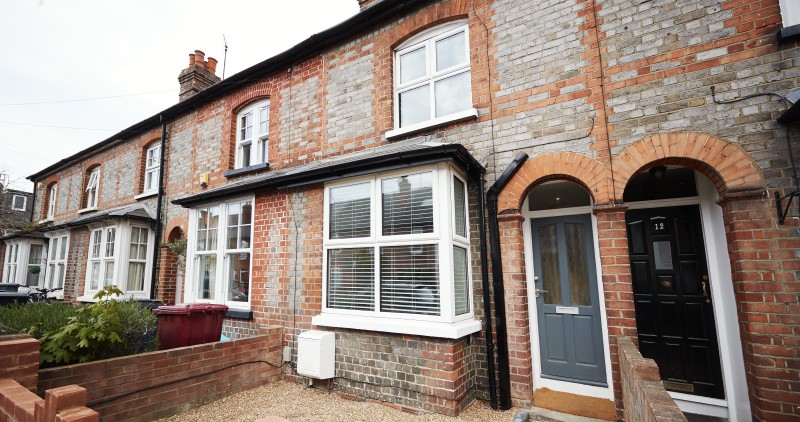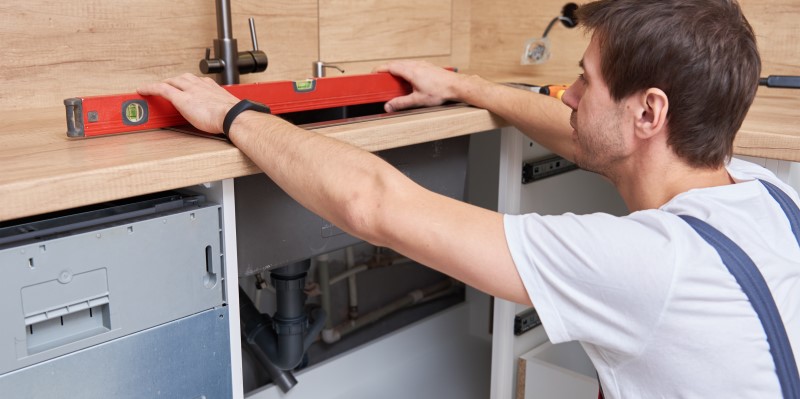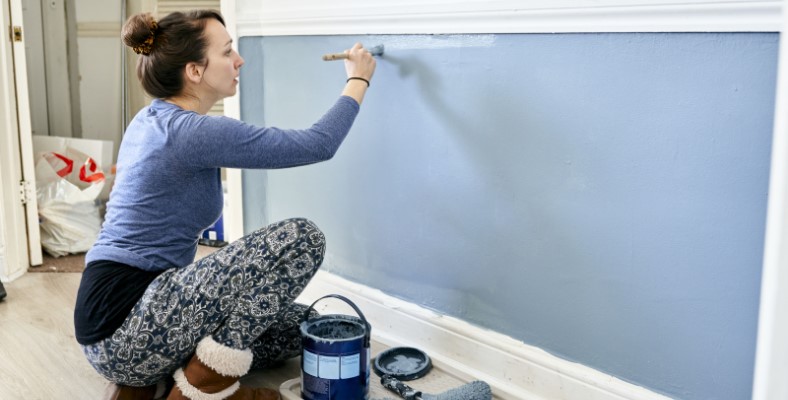Who is Responsible for Repairs in Shared Properties?

Whilst each lease may be worded slightly differently, in most cases, internal repairs will be your responsibility (including electrical and plumbing work) whilst external walls, roofs and communal areas fall within the housing associations/landlord's obligations.
Whilst shared properties can be a good choice for those who can’t quite afford a home that meets their needs, it can come with its own unique set of headaches. Mainly, the back and forth over who is responsible for repairs – you or your housing association?
This guide has been put together to help clear up some misconceptions surrounding repairs when living in shared properties. We’ll look at some of the most common guidelines, which will hopefully allow you to decide for yourself whether the problem you’ve encountered is your responsibility or your housing association.
Contents
- What Repairs Am I Responsible For?
- What Repairs is the Housing Association/Landlord Responsible For?
- Are the Rules Always the Same?
- Can I Make Property Improvements?
What Repairs Am I Responsible For?
There will be several duties you will be responsible for as a shared owner, typically set out in your lease. You can address the repairs yourself or hire a professional at your discretion, though do keep in mind that long-term damage or poor-quality repairs will make the already complicated matter of selling a shared ownership property even more difficult.
This is typically only the case, however, for internal damage. If a roof or exterior wall on your property needs repair, the housing association will be required to fix the issue. As the freeholder, they will also be responsible for the building insurance (though this charge will likely find its way to you via an annual or monthly service charge).
Bear in mind that you will still want to look into contents insurance as the freeholder may not be responsible for any lost property in the event of a break-in.
However, if the problem lies within your ceiling or interior wall, then that responsibility lies with you. The exterior/interior rule of thumb is one of the easiest ways to work out the responsibility of a repair in a shared property.
Housing associations will typically also charge you a yearly rate in order for them to cover the cost of the general upkeep (including cover building insurance). This may be paid annually, but more commonly it is broken down into monthly payments. This may also be in addition to the occasional one-off cost in response to damage outside of budgeted rates and not covered by building insurance.
In addition to these charges, you may also be responsible for paying ground rent. For new builds, this is capped at 3% of the value of the share the landlord owns. In the case of resale homes, it will be whatever the previous shared owner was paying. Make sure to ask your conveyancer to double-check this for you.

Keeping the interior of the property in good shape is also down to you – boilers, heating systems, electrics, gas, and any pipework within the interior included.
For more details you should have a contract that you signed when you first entered the property – your roles and responsibilities should be outlined in this. If you have any questions relating to this contract, it is best to ask them as early in your tenancy as possible. Better yet, ask the housing association before signing anything to ensure that you fully understand what will be asked of you.
What Repairs is the Housing Association/Landlord Responsible For?
The housing association you have a contract with will be responsible for a number of other repairs, including the structure and outside of the building as well as any shared areas and surfaces. Therefore, if you find one of the problems explored below, you will need to contact your housing association and make them aware of the issue as soon as possible.
Housing associations or housing associations are usually responsible for roofs, landings, bin stores, exterior lighting, communal locks and latches, and pathways. Usually, they are responsible for the catches and locks on a window, but you are responsible for the glazing. Damage to the frame varies depending on the situation, so consult your housing association or housing association if you need to know the answer here.
Another thing to remember – housing associations are not like your usual landlords. They will need to leave you to live in your property independently, and you are within your rights to forward a complaint if you feel that they aren’t allowing you to do this.
They cannot show up unexpectedly and order you to allow them in. Whether you need them, or they need you, both parties will need to give advanced warning for them to show up at your property.
Are the Rules always the Same?
Not exactly, though there are some rules that the housing association in particular will always need to follow; they will not be allowed to simply unload the responsibility onto you. However, it is best to communicate with both your housing association and your local council to get the clearest idea of what rules do and don’t apply to you.
Remember your lease should state the complete agreement between you and the landlord owning the other portion of your property. This should have all details pertaining to you and your landlords' obligations and so is the best first port of call when you have questions.
Can I Make Property Improvements?
You will need to review your lease and/or consult your housing association/landlord to know exactly what you can and can’t do on your property. That being said, in most cases improvements to the inside of your home are allowed. Including refurbishments, installing new appliances and painting.

Whatever you do conduct however will be your responsibility. You will also be responsible for the quality of the work that is carried out, whether you hire someone or do the work yourself.
If you are unclear on whether or not you can make a change, whether inside or out, it’s a good idea to get written permission from your landlord. For example, if you wanted to fit new roof windows. They may impose some limitations on the design and/or finish of your change but in most cases will allow you to make the improvement.
You will not likely be allowed to make outlandish and obvious changes to the exterior of your home, with extensions and the like almost certain to be contested, but it is always worth asking. After all, if you are looking to improve the property, it will likely also increase the value, which should appeal to the housing association. Do not do anything you do not have prior permission to do, however.
If you have any more questions or would like some advice on your next home improvement project, don’t hesitate to get in touch with our award-winning customer service team at 01295 565 565 or using the handy chat box below. We’ll be more than happy to help.